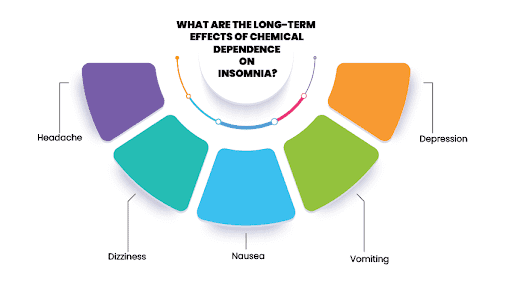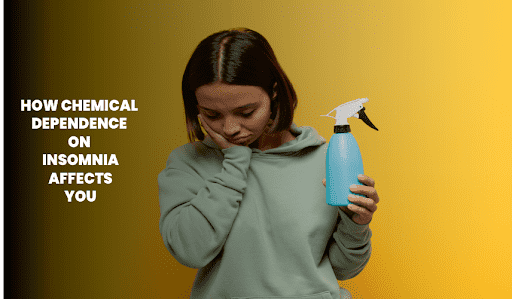Introduction
Do you struggle to sleep? You lay awake for a long time, waiting for sleep to arrive? Do your intrusive thoughts keep you awake for a long time? Does rest come very late, and do you wake up multiple times during the night? Chances are, you may be struggling with insomnia. Insomnia is a sleep disorder characterised by an inability to fall asleep even when you want to. There are different types of insomnia, and the treatment varies from lifestyle modifications to inculcating good sleep hygiene and medication. Sleeping pills are medicines for inducing sleep. Here’s everything you need to know about sleeping pills and how they work long-term.
Our Wellness Programs
What are sleeping pills?
Scientifically called sedative-hypnotics, sleeping pills work on the receptors in your brain and slow down your nervous system. They can be of varying chemical compositions.
Some of the most commonly used sleeping pills are as follows:
- Benzodiazepine sedative-hypnotic pills: These pills work to treat anxiety disorders and help in sleep-inducing. A combination of benzodiazepine with other drugs helps cure insomnia.
- Non-benzodiazepine hypnotic pills act on the brain’s area responsible for sleep. Medicines calm you down and lull you to sleep.
- Melatonin receptor agonists the sleeping pills: This sleeping pill mimics the hormone melatonin. Melatonin is responsible for slowing down your system and inducing sleep, often helping people with sleep-initiating insomnia.
- Antidepressants: Antidepressants are also sometimes prescribed for insomnia. They have a sedative effect and help people with depression, anxiety, and high-stress levels. It is often in conjugation with other medicines for treating these disorders.
Looking for services related to this subject? Get in touch with these experts today!!
Experts

Neelam Parwani

India
Life Coach
Experience: 5 years

Sapna Zarwal

India
Psychologist
Experience: 19 years

Deepti Gandhi

India
Life Coach
Experience: 6 years
What are the effects of sleeping pills?
The effects of the sleeping pills include calming down, drowsiness, relaxation, gentle shallow breathing, slowing down all your body processes and unconsciousness. These ensure you fall asleep, and the brain activity gently reduces to help you get good uninterrupted sleep. These sleeping pills also reduce anxiety and the frequency of insomnia episodes and promote a long peaceful sleep by acting on different brain centres.
How do sleeping pills work?
Sleeping pills relieve insomnia by relaxing your body and making you feel drowsy. Each sleeping pill has a different composition, and they work differently. The standard way they work is silencing your brain, inducing drowsiness, relaxing you and causing other parts of your brain to slow down so that you are not alert. They work on the receptors in your brain, slow down your nervous system, relax it and ensure you gradually lull to sleep.

What are the long-term effects of chemical dependence on insomnia?
The long-term effects of consuming sleeping pills include heavy dependence and the body getting accustomed to high dosage. It means your body cannot fall asleep naturally, and when your doctor reduces the dosage, you may face withdrawal and high levels of insomnia.
Long-term use of sleeping pills can cause-
- Headache
- Dizziness
- Nausea
- Vomiting
- Hallucination
- Drowsiness
- Depression
- Sleepwalking
- Trouble making decisions
- Impaired motor skills
These also cause addiction; if you stop taking them, you may experience withdrawal. You may also not be able to stop and may need to carry multiple refills. You may also see anxiety and loss of memory if you do not get these medications.
In the long term, sleep meds affect your memory, cause depression and promote dementia. These also have serious side effects on your heart, liver etc.
You may also experience gas, headache, heartburn, mental impairment, stomach pain, imbalance, uncontrollable shaking, nightmares, weakness, etc.
The long-term effect is the hangover effect, commonly seen in all kinds of sleep medications, which include:
- drowsiness
- difficulty with coordination
- impaired focus and memory
How to break the cycle of sleeping pill addiction
Those who regularly rely on sleeping pills often have a sleeping pill addiction and cannot fall asleep without it. Without them, it may cause severe withdrawal symptoms and rebound insomnia. It is essential to navigate a way to stop taking sleeping pills and break the addiction. An individual alone cannot do it, and accepting help, relying on alternatives and maintaining good sleep hygiene can be one way of doing it. Sleep music sometimes help to overcome.
-
Sleep hygiene
The number one way of ensuring that you are breaking the sleeping pill addiction is by preparing your body for the alternatives and gradually weaning yourself from sleeping pills by reducing the dosage and altering it. However, to do this, you must maintain good sleep hygiene by maintaining a conducive environment before falling asleep.
Firstly, cutting down on stimulants such as tea and coffee is essential. Hence eat a balanced diet and take nutrients which induce sleep. It also means working on your sleep habits by not using any device before bed. It will help you fall asleep is essential because preparing yourself to sleep well and having good sleep hygiene are critical to good health.
-
Work with your doctor.
When trying to break a long-term addiction to sleeping pills, it’s essential to work with your doctor and understand the safe limits by which you can reduce the drug dose. It’s necessary to go slow so you don’t entirely fall off the wagon and experience withdrawal symptoms. Work out a routine and a prescription dosage system which eventually meets your goals.
-
Therapy
Getting professional help is also another way of breaking the long-term addiction to sleeping pills. Addressing the issues, intrusive thoughts, depression and other mental health issues that prevent you from falling asleep are also important. Therapy can also help restructure your ideas and ensure you break the long-term addiction. You will also develop motivation and compassion for yourself. A good practitioner can suggest ways of falling asleep and make it easier to calm down without meds.
Conclusion
Sleeping pills help treat insomnia. They block brain activity during the night and stimulate melatonin production. They work by calming down your brain, ensuring you relax and gently fall asleep. Long-term usage of sleeping pills can have an impact on your body. You may also face withdrawal symptoms and may not be able to sleep without them. Finding alternatives and gently lowering your usage of these pills is essential. If you are having trouble with sleep, reach out to the expert mental health professionals at United We Care.
| [1] | B. Lemmer, “The sleep-wake cycle and sleeping pills,” Physiol. Behav., vol. 90, no. 2–3, pp. 285–293, 2007. |
| [2] | D. F. Kripke, R. N. Simons, L. Garfinkel, and E. C. Hammond, “Short and long sleep and sleeping pills. Is increased mortality associated?,” Arch. Gen. Psychiatry, vol. 36, no. 1, pp. 103–116, 1979. |
| [3] | F. Solomon, C. C. White, D. L. Parron, and W. B. Mendelson, “Sleeping pills, insomnia and medical practice,” N. Engl. J. Med., vol. 300, no. 14, pp. 803–808, 1979. |















